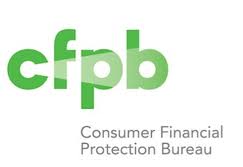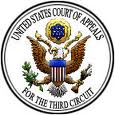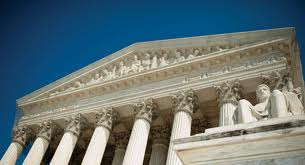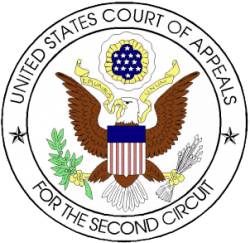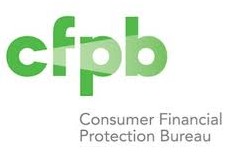Yesterday JP Morgan Chase Bank, N.A. and certain of its affiliates entered into a sweeping consent order with the Office of the Comptroller of the Currency covering its practices for collecting debt, as well as the practices used by its third-party service providers, including lawyers. According to the consent order (available here), the bank, among other things: caused affidavits to be filed in court where the affiant did not have personal knowledge of the assertions made or had reviewed the relevant books and records; allowed the filing of “inaccurate sworn documents” that resulted in judgments with financial errors in favor of…
Posts published by “Donald Maurice”
Donald Maurice provides counsel to the financial services industry, successfully litigating matters in the state and federal courts in individual and class actions. He has successfully argued before the Third, Fourth and Eighth Circuit U.S. Courts of Appeals, and has represented the financial services industry before several courts including as counsel for amicus curiae before the United States Supreme Court. He counsels clients in regulatory actions before the CFPB, and other federal and state regulators and in the development and testing of debt collection compliance systems. Don is peer-rated AV by Martindale-Hubbell, the worldwide guide to lawyers. In addition to being a frequent speaker and author on consumer financial services law, he serves as outside counsel to RMA International, on the governing Board of Regents of the American College of Consumer Financial Services Lawyers, and on the New York City Bar Association's Consumer Affairs Committee. From 2014 to 2017, he chaired the ABA's Bankruptcy and Debt Collection Subcommittee. For more information, see https://mauricewutscher.com/attorneys/donald-maurice/
Changes to the systems by which banks and other entities (also known as “furnishers”) supply credit reporting agencies with consumer credit information prompted a Bulletin yesterday from the Consumer Financial Protection Bureau emphasizing the greater role it sees documents playing in the consumer credit dispute process. In announcing its expectation that furnishers review “all relevant information” when responding to consumer disputes, the CFPB reiterates what is already required by FCRA’s section 1681s-2(b). When responding to a consumer’s dispute concerning information furnished by it to a credit reporting agency, a furnisher is required, among other things, to “review all relevant information provided by the CRA . . .”…
A federal judge in Pennsylvania has ruled that the Telephone Consumer Protection Act does not apply to debt-collection calls, even calls made to cellular telephones. A copy of the decision is available here. Noting that Congress enacted the TCPA to address telemarketing, the decision relied upon a portion of the Eleventh Circuit Court of Appeals’ decision in Meadows v. Franklin[ref]414 F. App’x 230, 235 (11th Cir. 2011)[/ref] which stated, “the [Federal Communications Commission] has determined that all debt-collection circumstances are excluded from the TCPA’s coverage.” The decision is certainly in the minority as nearly all courts examining the issue have determined that debt-collection calls made…
Yesterday, the Third Circuit Court of Appeals held that the Telephone Consumer Protection Act (47 U.S.C. § 227) allows a consumer to revoke her prior express consent to be called using an autodialer or prerecorded voice. In its decision, Gager v. Dell Financial Services, the Circuit Court reversed a district court’s earlier finding that once a consumer provided consent to receive autodialed or prerecorded calls, a consumer cannot later revoke the consent. Persons using autodialer technology or prerecorded messages are required by the TCPA to obtain the “called party’s” “prior express consent” before making their calls. While some types of calls…
If your organization might have violated a consumer financial protection law, should it disclose that potential violation to the Consumer Financial Protection Bureau? It seems that at least one CFPB insider believes that the potential violation should be self-reported. At today’s meeting of the Consumer Financial Services Committee in San Francisco, Peggy Twohig, CFPB Assistant Director, Office of Supervision Policy, offered a few remarks on whether a covered entity should self-report conduct where the law is not clear on whether the conduct violates consumer financial protection law. In concluding that an entity should self-report even these “grey issues,” Twohig noted that covered entities…
The U.S. Supreme Court has granted certiorari in NLRB v. Noel Canning[ref]705 F.3d 490 (D.C. Cir. 2013)[/ref], a case from the U.S. Court of Appeals of the District of Columbia which held that President Obama’s recess appointment of three members to the National Labor Relations Board was unconstitutional. The decision found that a president could not exercise his power to make recess appointments during a period when the Senate was not between sessions of Congress. The Court’s decision to hear Noel Canning has direct implications for Richard Cordray, Director of the Consumer Financial Protection Bureau, who was appointed on the same day as the three NLRB commissioners whose appointments…
The Second Circuit’s recent decision in Hooks v. Forman[ref]Hooks v. Forman, Holt, Eliades and Ravin, LLC, 12-3639 (2nd. Cir. May 29, 2013). A copy of the decision is available here.[/ref] has received quite a bit of attention since it was handed down May 29. The case held that a disclosure made pursuant to 1692g(a) violated the Fair Debt Collection Practices Act when it instructed the recipient of the letter that if she wished to dispute the debt, she could only do so in writing. The decision recognized that under section 1692g, some disputes can be verbal. It also recognized that under other sections (particularly…
Some relief has come to those using preview dialers to make telemarketing or informational calls to cell phones. The court in Nelson v. Santander[ref]Nelson v. Santander Consumer USA, Inc., 2013 U.S. Dist. LEXIS 40799 (W.D. Wis. Mar. 8, 2013)[/ref] vacated its opinion of March 8, which held that preview dialers were automatic telephone dialing systems subject to regulation by the Telephone Consumer Protection Act [ref]47 U.S.C. 227[/ref]. The order was entered on June 7, on a joint motion and stipulation made by the parties. The case was dismissed, with prejudice, that same day. The order vacating the March 8 opinion is here. While…
The City of Boston will be forwarding calls from residents to the Consumer Financial Protection Bureau when the callers have questions or complaints about financial products and services, the city announced yesterday. Those who call the city’s 24-hour hotline at (617) 635-4500 with questions about such matters as credit cards, mortgages and loans will be connected with the CFPB, who will provide answers and process complaints. The CFPB screens complaints and contacts companies on behalf of consumers, requesting feedback from companies within 15 days and a resolution within 60 days.
If you are a member of the American Bar Association, check out its CLE Premier Speaker Series at www.ambar.org/freecle. Every month the series provides ABA members a free CLE seminar. This Monday has a pretty special presentation Ethical Tools to Diffuse Incivility. According to the registration page, the ABA is requesting 1.5 of Ethics CLE Credits in many states. It’s a great topic and a good way to fulfill your Ethics CLE.
The Consumer Financial Protection Bureau has issued rules on The Credit Card Accountability Responsibility and Disclosure Act (“CARD Act”) to make it easier for stay-at-home spouses and partners to get credit cards by allowing card issuers to consider household income in their applications. The 2009 CARD Act requires that card issuers determine if a consumer is able to repay a debt before opening an account or increasing a limit. Until this new regulation, the issuer was only able to consider the individual applicant’s independent income. Card issuers have six months to comply with the new regulation. The CFPB’s press release is…


